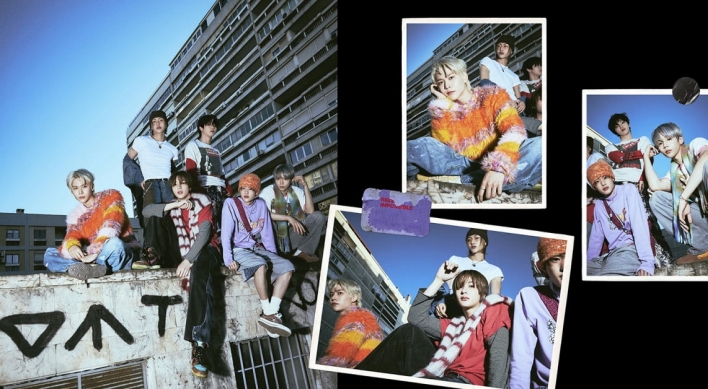Law firms, foreign financial firms may face external audits
Regulators to expand accounting oversight to raise transparency, increase tax revenue
By Kim Yon-sePublished : April 29, 2013 - 20:01
The Financial Services Commission is considering widening the scope of its accounting oversight targets under the Park Geun-hye administration’s drive to raise tax revenue.
The new targets may include law firms, accounting firms, religious groups, donation fund operators, some local units of foreign financial firms and luxury brands operating here, FSC officials said.
The cited sectors have not been subject to external audits, while financial statements of a greater portion of businesses have been under compulsory oversight of auditors dispatched by accounting firms.
“As a first step, we plan to expand the targets to private schools and mutual financing firms,” an FSC official. “On a mid and long-term basis, we will seek grounds to instruct the industries such as law firms and religious groups to submit financial statements audited by external accountants.”
The regulatory policy comes as the government has been ramping up efforts to boost corporate transparency, which is in step with the Park Geun-hye administration’s commitment to raising tax revenue by closely monitoring the underground economy.
There have been growing voices over the necessity that more foreign firms and luxury goods manufacturers be audited by an outside accounting firm, since they have been tight-fisted with social contribution, while they are busy hiking dividends to guarantee more returns for their headquarters.
Some claimed that religious groups should also be subject to an outside audit since their rogue books have often been exposed as a social problem.
Highlighting the lack of fairness, some market observers said it is not fair to exempt large accounting firms from an objective audit when they met the requirements and have annual revenue of over 100 billion won ($91 million).
Under the law, an unlimited company with assets worth 10 billion won or more as of the immediate preceding year should undergo external audits.
The underground economy, which has come under spotlight, refers to business and economic activities, legal or illegal, that are not covered by official economic statistics and thus easily evade taxation.
Additional tax revenue from the shadow economy is critical for the success of the new government, which has promised to boost welfare spending without increasing taxes. To fund President Park’s welfare-related pledges, critics estimate that about 153 trillion won will be needed over the next five years.
Park has clarified that her administration would not seek tax hikes to fund welfare. Instead, she said it would secure funds by cutting wasteful spending and collecting revenue by regularizing the shadow economy.
The size of the nation’s shadow economy is not known, but experts agree that Korea has a bigger underground economy than other OECD countries due to the high number of self-employed people.
According to the Hyundai Economic Research Institute, self-employed businesses made up one-third of the country’s total economic activity.
By Kim Yon-se (kys@heraldcorp.com)
The new targets may include law firms, accounting firms, religious groups, donation fund operators, some local units of foreign financial firms and luxury brands operating here, FSC officials said.
The cited sectors have not been subject to external audits, while financial statements of a greater portion of businesses have been under compulsory oversight of auditors dispatched by accounting firms.
“As a first step, we plan to expand the targets to private schools and mutual financing firms,” an FSC official. “On a mid and long-term basis, we will seek grounds to instruct the industries such as law firms and religious groups to submit financial statements audited by external accountants.”
The regulatory policy comes as the government has been ramping up efforts to boost corporate transparency, which is in step with the Park Geun-hye administration’s commitment to raising tax revenue by closely monitoring the underground economy.
There have been growing voices over the necessity that more foreign firms and luxury goods manufacturers be audited by an outside accounting firm, since they have been tight-fisted with social contribution, while they are busy hiking dividends to guarantee more returns for their headquarters.
Some claimed that religious groups should also be subject to an outside audit since their rogue books have often been exposed as a social problem.
Highlighting the lack of fairness, some market observers said it is not fair to exempt large accounting firms from an objective audit when they met the requirements and have annual revenue of over 100 billion won ($91 million).
Under the law, an unlimited company with assets worth 10 billion won or more as of the immediate preceding year should undergo external audits.
The underground economy, which has come under spotlight, refers to business and economic activities, legal or illegal, that are not covered by official economic statistics and thus easily evade taxation.
Additional tax revenue from the shadow economy is critical for the success of the new government, which has promised to boost welfare spending without increasing taxes. To fund President Park’s welfare-related pledges, critics estimate that about 153 trillion won will be needed over the next five years.
Park has clarified that her administration would not seek tax hikes to fund welfare. Instead, she said it would secure funds by cutting wasteful spending and collecting revenue by regularizing the shadow economy.
The size of the nation’s shadow economy is not known, but experts agree that Korea has a bigger underground economy than other OECD countries due to the high number of self-employed people.
According to the Hyundai Economic Research Institute, self-employed businesses made up one-third of the country’s total economic activity.
By Kim Yon-se (kys@heraldcorp.com)






![[New faces of Assembly] Architect behind ‘audacious initiative’ believes in denuclearized North Korea](http://res.heraldm.com/phpwas/restmb_idxmake.php?idx=644&simg=/content/image/2024/05/01/20240501050627_0.jpg&u=20240502093000)











![[Today’s K-pop] Sunmi to drop single next month](http://res.heraldm.com/phpwas/restmb_idxmake.php?idx=642&simg=/content/image/2024/05/03/20240503050545_0.jpg&u=)